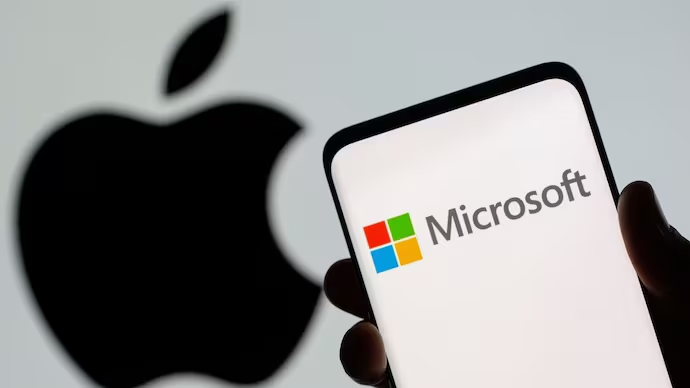Microsoft is forcing its Chinese workers to transition to iPhones for business reasons as part of a shift that prioritizes cybersecurity. With effect from September 2024, this new policy will no longer allow Android devices in the workplace in an effort to increase security.Because the operating system is less susceptible to security lapses, Microsoft believes that iPhones are intrinsically safer, according to a Bloomberg article that cites an internal paper.
Chinese employees who presently own Android phones including well-known regional brands like Xiaomi and Huawei will have the option to trade them in for an iPhone 15 on a one-time basis. To help with the transition, the business reportedly plans to establish distribution centers inside its Chinese headquarters. Notably, Microsoft employees in Hong Kong will also be subject to this more stringent security protocol, which goes beyond mainland China.
iPhones will now be required for employees to use business apps like Identity Pass and Microsoft Authenticator. Two main causes led to this decision: China’s fragmented Android ecosystem and security concerns.
First off, because iOS is unified, Microsoft believes that iPhones are intrinsically more secure. Compared with China’s diversified Android environment, where the app stores controlled by businesses such as Huawei and Xiaomi are the dominant players, this facilitates better monitoring and lowers the danger of security breaches.
Second, Microsoft has a history of being present in China. The business has expanded significantly since 1992, opening its biggest R&D facility outside of the United States. Ensuring effective security measures is even more important in light of this large investment in China.
Microsoft hasn’t formally disclosed the iPhone mandate for employees or disclosed the number of employees it employs in China, but rumors say the corporation wants to isolate cloud vulnerabilities in order to make hacking attempts more difficult.









